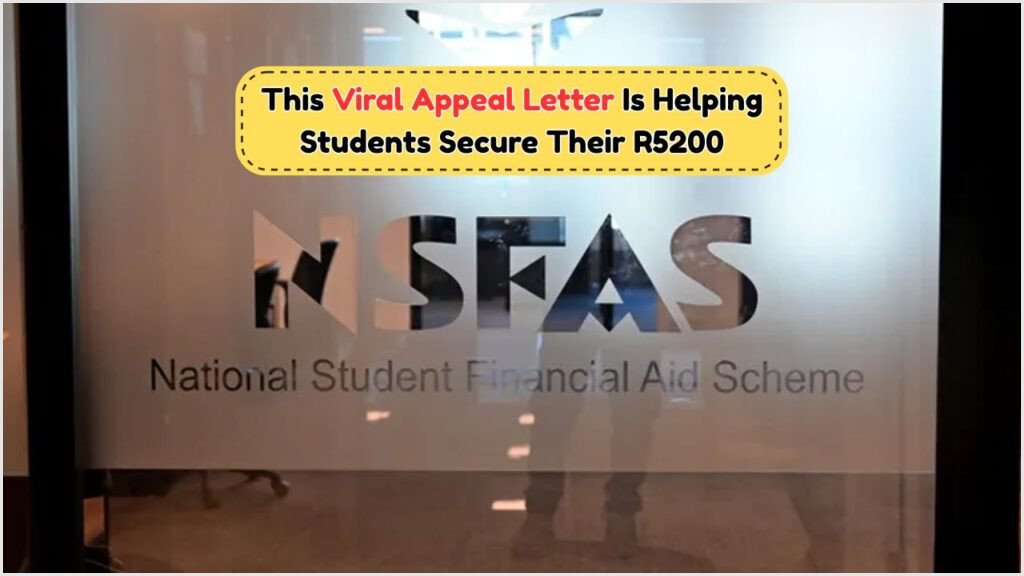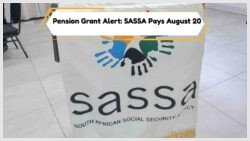Unlock R5,200: This NSFAS Appeal Strategy Works Like Magic!: Navigating the financial aid landscape in South Africa can be daunting for many students, but understanding how to leverage the National Student Financial Aid Scheme (NSFAS) appeal process can make a significant difference. This strategic approach not only gives students the opportunity to unlock up to R5,200 but also ensures they remain on track with their educational goals. Many students are unaware that there are specific ways to appeal a rejected NSFAS application effectively. By presenting a compelling case and understanding the eligibility criteria, students can increase their chances of success. This article will guide you through the necessary steps and offer insights into crafting an effective appeal that could work like magic.
Understanding the NSFAS Appeal Process in South Africa
The National Student Financial Aid Scheme (NSFAS) is a crucial resource for students in South Africa, providing financial support for those who may otherwise be unable to afford higher education. Understanding the appeal process is vital for students whose applications have been initially declined. An appeal offers a second chance to present your case for funding. The process begins with a thorough review of the reasons for the rejection, which are typically outlined in the rejection letter sent by NSFAS. Common reasons include incomplete documentation, discrepancies in financial information, or failure to meet academic criteria.
 Discover the Fastest Way to Unlock NSFAS Funds: Thousands Swear by This Proven Appeal Format!
Discover the Fastest Way to Unlock NSFAS Funds: Thousands Swear by This Proven Appeal Format!
- Review the rejection letter carefully.
- Gather all necessary supporting documents.
- Ensure you meet all the eligibility criteria.
- Write a clear and concise appeal letter.
- Submit the appeal within the stipulated deadline.
- Follow up with NSFAS for updates.
- Be prepared for additional requests for information.
- Remain patient throughout the process.
Crafting a Compelling NSFAS Appeal Letter
Writing an effective appeal letter is essential in convincing NSFAS to reconsider your application. The letter should be structured clearly, beginning with an introduction that identifies you and your intentions. Clearly state the reason for your appeal and provide any new or additional information that could support your case. It is important to maintain a respectful and professional tone throughout the letter. Highlight any changes in your financial situation or academic performance that may have occurred since your initial application. Additionally, ensure that all statements are supported by relevant documentation.
| Section | Details | Importance | Tips |
|---|---|---|---|
| Introduction | Personal details and purpose | Sets the context | Be concise |
| Reason for Appeal | Why you should be reconsidered | Core of the letter | Be honest |
| Supporting Information | New evidence or changes | Strengthens appeal | Provide documents |
| Conclusion | Summary and request | Concludes appeal | End with gratitude |
| Attachments | Supporting documents | Verifies claims | Ensure completeness |
Common Mistakes to Avoid in NSFAS Appeals
While appealing a rejected NSFAS application, it’s crucial to avoid common pitfalls that could hinder your chances of a successful appeal. One major mistake is submitting an incomplete appeal. Ensure all required documents and information are included before submission. Another frequent error is failing to adhere to deadlines. Missing the appeal submission deadline can result in automatic denial. Additionally, providing inaccurate or misleading information can severely impact your credibility and result in permanent disqualification from receiving NSFAS funding.
 August 17, 2025: R1,250 Foster Child Grant Payout Begins – Ensure You Receive Your SMS Alert!
August 17, 2025: R1,250 Foster Child Grant Payout Begins – Ensure You Receive Your SMS Alert!
- Submit a complete application with all necessary documents.
- Verify all information for accuracy before submission.
- Adhere strictly to appeal deadlines.
- Maintain a professional tone in all communications.
- Be transparent and honest about your financial situation.
- Ensure all documents are legible and clear.
- Keep copies of all submitted documents for your records.
- Follow up on your appeal status regularly.
How to Improve Your Chances of a Successful NSFAS Appeal
Improving your chances of a successful NSFAS appeal involves a strategic approach. Start by ensuring your appeal is submitted well before the deadline, as early submissions often receive priority attention. Tailor your appeal to address the specific reasons for your initial rejection, providing clear and compelling evidence. Additionally, seek advice from academic advisors or financial aid officers who are familiar with the NSFAS process. They can provide valuable insights and guidance. Remember, thorough preparation and attention to detail are key to a successful appeal.
| Strategy | Description |
|---|---|
| Early Submission | Submit appeal early for priority |
| Address Specific Issues | Focus on reasons for rejection |
| Seek Expert Advice | Consult with advisors |
| Provide Evidence | Support claims with documentation |
| Attention to Detail | Ensure a complete appeal |
| Regular Follow-up | Monitor status of appeal |
| Stay Informed | Keep updated with NSFAS policies |
Gathering Essential Documents for NSFAS Appeal
Collecting the right documents is crucial for a successful NSFAS appeal. The most common documents include proof of income, academic records, and any additional information that supports the changes in your financial or academic situation. Make sure all documents are recent and accurately reflect your current status. It’s also beneficial to include any correspondence you have had with NSFAS regarding your application. This can help provide a comprehensive view of your situation and demonstrate your proactive approach in resolving any issues.
- Recent pay slips or income statements
- Certified copies of academic transcripts
- Official correspondence with NSFAS
- Proof of any change in circumstances
- Letters of recommendation (if applicable)
FAQ Section: Common Queries about NSFAS Appeals
What is the deadline for submitting an NSFAS appeal?
It varies each year, so check the official NSFAS website for the current deadline.
Can I appeal more than once?
Yes, but it’s crucial to address the reasons for initial rejections in subsequent appeals.
What if I miss the appeal deadline?
Missing the deadline generally means you’ll need to wait until the next application cycle.
How long does it take to get a response?
Response times can vary, but typically range from a few weeks to a couple of months.
Is there a fee for submitting an appeal?
No, submitting an appeal to NSFAS is free of charge.




